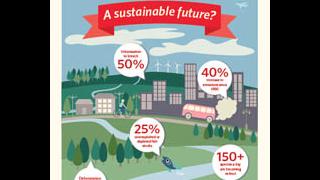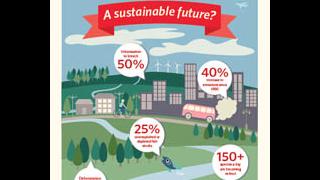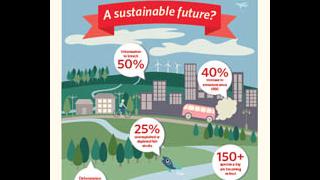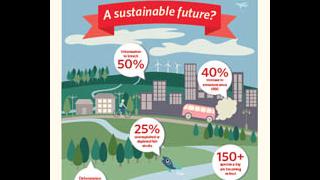
The UN Children's Fund (UNICEF) estimates that approximately 100 million children around the world – the majority of them girls – are still denied their right to an education. Whilst the UN has made real progress in working towards the second Millennium Development Goals, on universal primary education, much more still needs to be done. Enrolment in primary education in developing nations reached 89 per cent in 2008, but hitting the 100 per cent target by 2015 is unlikely. Yet it is this goal, above all the rest, which we should be striving to achieve on time, since it could go a considerable way towards realising the others.
Firstly, getting more children into school, in particular girls, will have a huge impact on broader development factors. Education is the most effective way to break the cycle of adolescent pregnancy and poor maternal health. Receiving even a basic education makes girls more likely to delay marriage, have fewer children and have better family health.
Research from Brazil and Peru has shown that each extra year of schooling for girls reduces fertility rates by 5-10 per cent, and according to the World Bank, women in Africa with seven or more years of schooling get married five years later than those with no education.
And sexual health can be improved with education too. Studies in Latin America have shown comprehensive sexual education to support behaviours which decrease the risk factors of HIV. That is, reduce the frequency of unprotected sex, reduce the number of sexual partners and increase the use of contraceptives.
Importantly, because education is the primary vehicle through which societies reproduce themselves, society will be a reflection of the education a generation receives. That is to say that simply the process of teaching girls and boys alongside one another, on an equal basis, creates a social norm of gender equality.
Giving children access to an education will afford both girls and boys better opportunities in their adult lives. Those who are educated are proven to earn more not just because of their credentials, but also because they are more productive: farmers with a broader knowledge of new technologies and new disease-resistant seeds for instance.
Not only that, it improves the opportunities of future generations too. Multiple studies from Egypt, Ghana, India, Kenya, Malaysia, Mexico and Peru have shown that mothers are substantially more likely to enrol their children, and especially their daughters, in school, if they themselves have received even a basic education.
Education also plays a vital role in enhancing the capacity of poorer people to participate in the political process; giving them a greater awareness of their social and political rights, and thus the ability to demand accountability and transparency from their governments.
Of course getting children into school is vital, but arguably it is keeping them in education that will make the difference, which is why achieving universal primary education has the power to change the lives of future generations.
Jo Robinson has a degree in Geography from the University of Durham and is a freelance journalist with experience writing for The Times and AOL. She is currently Digital Communications Intern at UNA-UK.

























